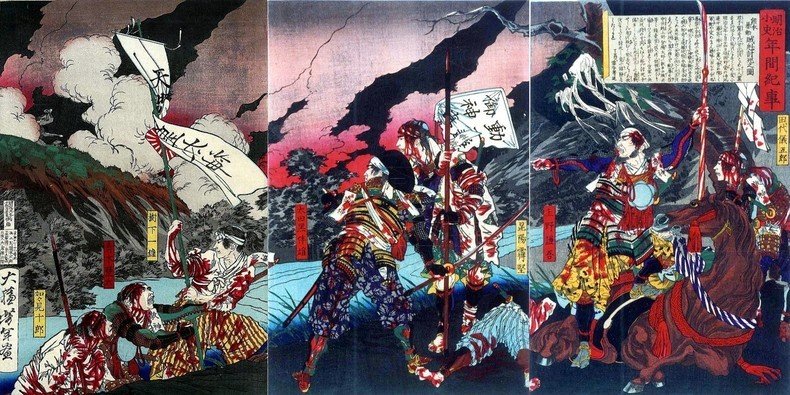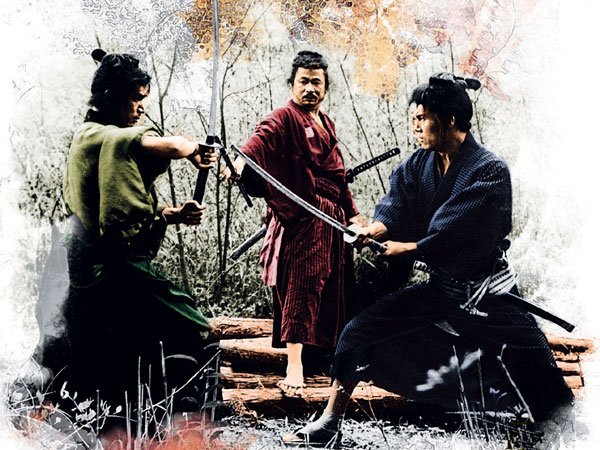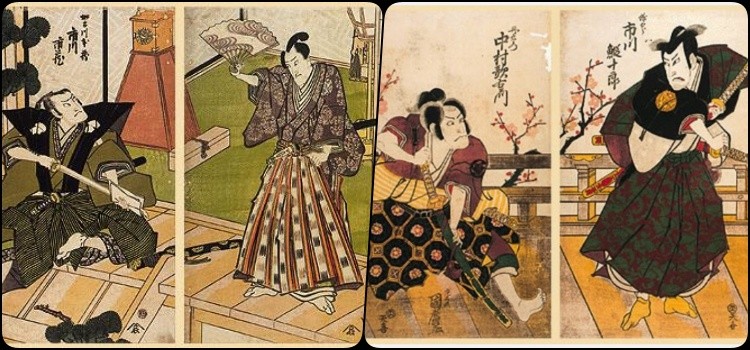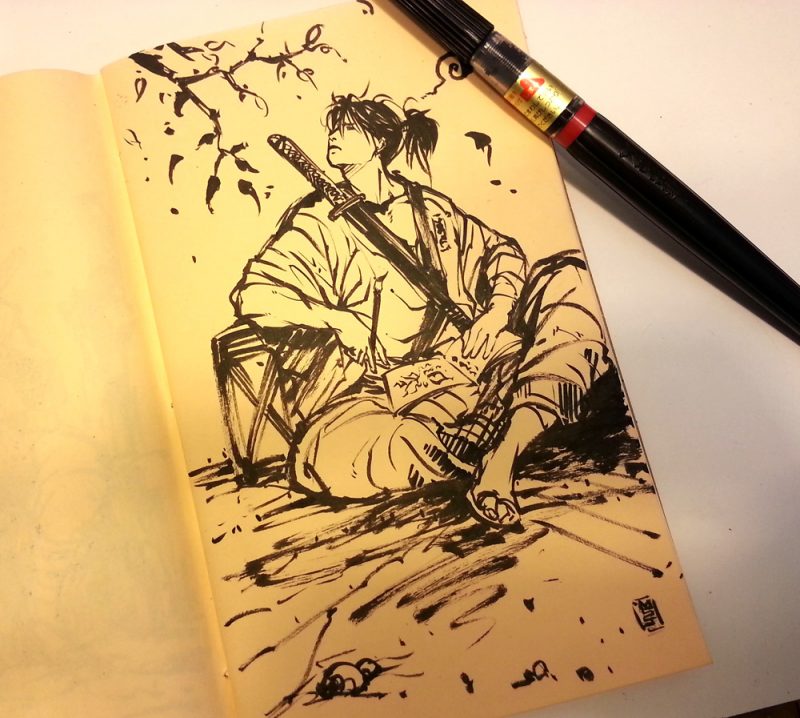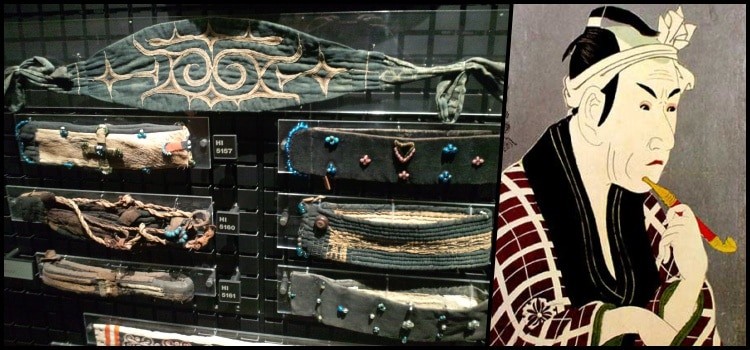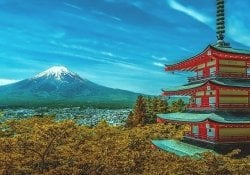Bushido (武士道) – or bushi – is a practice so as to be a code of honor for samurai. Bushido literally means "way of the warrior". It was an unwritten manual, which, for the samurai, meant emphasizing loyalty, faithfulness, self-sacrifice, justice, refined manners, humility, martial spirit, and most importantly, honor above all, to a death. and dignified life.
Bushido was developed between the 9th and 12th centuries. His great influence on Japan was demonstrated through translated writings from the twelfth and sixteenth centuries onwards. The base development takes place through the diffusion of influences and concepts Buddhists, Shintoists and Confucianists. It arose from the combination of these doctrines and religions and from feudalism itself.
Another particularity of Bushido is that there is a code of honor. This code has 7 precepts to follow and become a samurai of honor and dignity before your life, and before the feudal lord or his daimyo.
through this article, and others to come, we'll see more about Japan's elite warrior class, the Samurai. The source of this article is Bushido Online, inspiration and even some phrases were taken from there. Don't forget to check out their website. So let's go!
Índice de Conteúdo
Influences of doctrines and religions
Buddhism is linked to bushido through fearlessness of danger and death. The samurai are brave warriors who did not fear their death, as they believed in the Buddhist teachings, by which they preached life after death. Therefore, they continually lived in the desire and “faith” to continue in their charge as a warrior in their continuous reincarnations. Learning and encouraging detachment was the foundation of a samurai, for with the practice of it, they became the greatest warrior caste that ever existed.
Shintoism also enters into the precepts of Bushido. Shinto brings with it the precepts of loyalty, patriotism and reverence for one's ancestors. Shinto has great importance with its country, Japan. This patriotism that leads them to loyalty to the memory of their ancestors, the samurai pledged the same loyalty to the emperor and to their feudal lord or daimyo. They also believe that the Earth doesn't just exist to meet people's needs. “It is the sacred residence of the gods, of the spirits of their ancestors… The Earth must be cared for, protected and nourished by an intense patriotism”.
Confucianism is more related to belief in human beings and their families. Bushido preaches justice, benevolence, love, sincerity, honesty and self-control. And these preachings are “intimate” relationships offered by Confucianism for emphasizing filial duties between servant and master, father and son, husband and wife and several other distinctions. With the definition that Justice is one of the main factors in the samurai code, as well as love and benevolence as a virtue of the samurai.
The way
Bushido means "Warrior's Way", "Bushi" equals Warrior and "of" equals Path. Following the same direction, the ideogram for path, in Japanese, is egalitarian to the Chinese form “Tao”, expressing a philosophical concept for a absolute. This concept gives the idea of origin, principle and essence of all things.
“Bushido means the warrior's total life, his devotion to the sword, his respect for the norms dictated by Confucianism. It is not just a system of ethics to be followed by social classes. It is the road of the cosmos, the sacred vestiges of the Heavens, pointing the Way”. – The Book Of Five Rings.
In general, a warrior is one who seeks his own path. We are all warriors, many of us are searching the path not knowing it. To be a warrior is to have a goal and that, through this, it is possible to discover your gifts and limitations. through this awareness, the warrior achieves his goal, combined with the will to overcome weaknesses, fears, and limitations. Each person walks their own path. And we all do it conscious of our slope, therefore, a warrior is one who follows his specific path.
meaning of the term
The term bushi cannot be addressed to just anyone. It is different, as bushi in its studies and practices is based on surpassing men. Samurai are different for their loyalty and honor, not being honored in your life is a samurai warrior's greatest regret. "THE warrior's word is worth more than anything”.
“When a warrior takes responsibility, he keeps his word. Those who promise and don't keep, lose self-respect, are ashamed of their actions and their life consists of running away, spend more energy making excuses to dishonor their word, than the warrior uses to keep his commitment. Sometimes the warrior takes on a responsibility that will result in harm. He does not repeat this attitude, but honors what he said and pays the price for his impulsiveness. – Warrior of Light Handbook.
The article is still halfway through, but we recommend also reading:
Bushido Practices
Bushi is not just the way of the “warrior” and war, bushi is also the way of the pen and the sword, a concept that comes from ancient feudal Japan. Keeping an open mind was the duty of the nobility (bushi), so that they mastered both the art of war and reading, and should appreciate both arts. Therefore, one should learn the path of all professions, learn about all subjects, appreciate the arts, and when not engaged in military duties, one should always practice something, reading or writing, so that he can store history in his mind. ancient and general knowledge.
The samurai needed to have self-control, detachment and austerity in order to maintain their honor, and that, because of this, we can say that they, the samurai, are complete warriors. And bushido – your code of honor – adds, even today, strong influences in the lifestyle of the Japanese people, offering an explanation of character, as well as their indomitable inner strength, the Japanese.
Correct behavior was followed at all times to present, in fact, a posture worthy of a samurai, without deviating from his – real – path, bushido. Etiquette must be followed, every day of everyday life, just like in the war for the samurai. Sincerity and honesty are the virtues that measure their lives. Transcending a pact of complete fidelity and trust is linked to dignity.
Honor and dignity
“A samurai must, first of all, keep in mind, day and night, from the morning of the new year, when he picks up the sticks for breakfast, until the evening of the last day of the year, when he pays his bills, the fact that one day will die. That is your main task.” – Bushido The Code Of The Samurai – Daidoji Yuzan.
To be a warrior is to be aware of death. If he has such awareness, he will avoid conflicts, be free from diseases, in addition to having a quality personality that is different from other human beings. The warrior doesn't worry about tomorrow, and that means adding character and total sincerity and consideration to other people, being deeply sincere.
Dying from unnecessary arguments could result in your dishonor and, perhaps, harm your family's reputation and name. If the idea of death is maintained, he will be careful and likely to be discreet and not say things that offend other people. Furthermore, they will not commit unhealthy excesses with food, drink and sex, using moderation, common sense and deprivation in everything, for good physical and mental health.
Miyamoto Musashi once said, “Men must shape their way. From the moment you see the path in everything you do, you become the path.
code of honor
The warrior class of feudal Japan known as the samurai, or bushi, achieved fame for their bravery, martial skills, honor, and their unshakable spirit in the face of death. This reputation is due to a code of ethics and conduct, followed and lived by the warriors, known as bushido.
Bushido Precepts:
GI - Justice and Morality
Direct attitude, correct reason, deciding without hesitating;
YU - Courage
Heroic bravery;
JIN - Compassion
Benevolence, sympathy, unconditional love for humanity;
KING - Politeness and courtesy
Kindness;
MAKOTO - sincerity
Total truthfulness, never lie;
MEIYO - honor
Glory;
HUGO - Duty and Loyalty
Devotion, Loyalty.
For a samurai, honoring the name of his family and ancestors is said through death in battle or duel, but not necessarily. And to fail, before his lord, was the greatest dishonor for the warrior, who in the end, had no choice but to commit suicide, or seppuku as known. This is only possible by the standards that govern the samurai warrior through bushido.
There are huge books explaining all the details about bushido. It is impossible to cover the whole topic in just one article. We will end the article here and thank you for reading and possible sharing.


